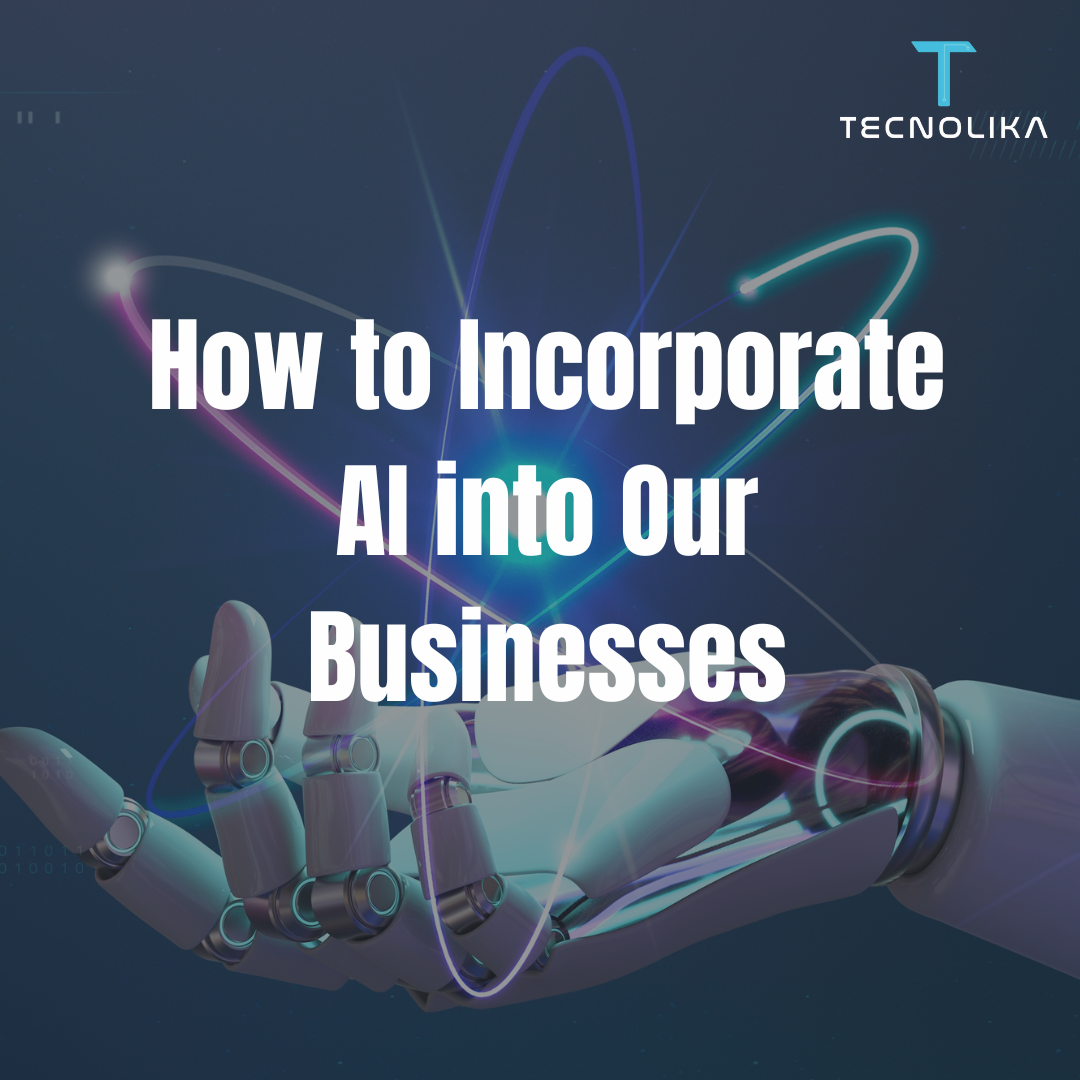

Close


In today’s rapidly evolving digital landscape, businesses are constantly seeking innovative ways to gain a competitive edge. One of the most promising and transformative technologies in recent years is artificial intelligence (AI). By leveraging AI, businesses can streamline operations, enhance decision-making processes, and unlock new opportunities for growth. In this article, we will explore how businesses can successfully incorporate AI into their operations and reap its benefits.
Before delving into the integration of AI into business processes, it’s crucial to have a fundamental understanding of what AI entails. Artificial intelligence refers to the development of computer systems that can perform tasks that typically require human intelligence. These tasks include speech recognition, problem-solving, pattern recognition, and decision-making. By utilizing algorithms and large datasets, AI systems can learn and adapt, making them valuable tools for businesses in various industries.
To effectively incorporate AI into a business, it’s essential to identify specific areas where AI can bring the most value. Start by evaluating your current processes and pain points. Are there repetitive tasks that consume a significant amount of time and resources? Can AI be utilized to automate these tasks and improve efficiency? Additionally, consider areas where AI can enhance decision-making, customer service, data analysis, or product development. By focusing on these areas, you can prioritize AI implementation and maximize its impact.
Data analysis plays a crucial role in today’s data-driven business landscape. AI can significantly enhance data analysis capabilities by processing large volumes of data quickly and accurately. By leveraging AI algorithms, businesses can uncover valuable insights, detect patterns, and make data-driven decisions. Implementing AI-powered data analytics tools and platforms can help businesses gain a competitive advantage by optimizing marketing strategies, predicting customer behavior, and identifying emerging market trends.
AI can revolutionize customer experience by providing personalized and efficient interactions. Chatbots, for example, are AI-powered virtual assistants that can handle customer queries, provide product recommendations, and assist with online purchases. By integrating chatbots into websites or messaging platforms, businesses can offer round-the-clock customer support, improve response times, and enhance customer satisfaction. AI can also be utilized to analyze customer feedback, sentiment analysis, and social media data to gain insights into customer preferences and tailor offerings accordingly.
AI can play a significant role in optimizing supply chain and operations management. By implementing AI-driven systems, businesses can improve inventory management, demand forecasting, and logistics planning. AI algorithms can analyze historical data, market trends, and external factors to optimize inventory levels, reduce stockouts, and minimize carrying costs. Additionally, AI-powered predictive maintenance can help prevent equipment failures, reduce downtime, and improve overall operational efficiency.
Marketing is an area where AI can make a profound impact. AI-powered marketing automation platforms can analyze customer data, segment audiences, and personalize marketing campaigns. By leveraging AI algorithms, businesses can deliver targeted advertisements, optimize email marketing, and tailor content to specific customer segments. AI can also enhance social media marketing by identifying influencers, analyzing sentiment, and optimizing ad targeting. Incorporating AI into marketing strategies can lead to increased customer engagement, improved conversion rates, and better ROI.
While incorporating AI into business operations offers numerous benefits, it’s essential to acknowledge and address potential challenges. These challenges include data security and privacy concerns, ethical considerations, and employee training. To ensure a successful AI implementation, businesses should prioritize data security, comply with regulations, and be transparent in their AI practices. Additionally, providing comprehensive training programs for employees can help them adapt to AI-powered systems and leverage AI’s capabilities effectively.
Incorporating AI into businesses is no longer a luxury but a necessity in today’s digital age. By understanding the basics of AI, identifying areas for implementation, leveraging AI for data analysis, enhancing customer experience, optimizing supply chain and operations, embracing AI-driven marketing strategies, and overcoming challenges, businesses can harness the power of AI to gain a competitive advantage. Embracing AI technologies will not only improve efficiency and decision-making but also pave the way for innovation and growth in the dynamic business landscape.